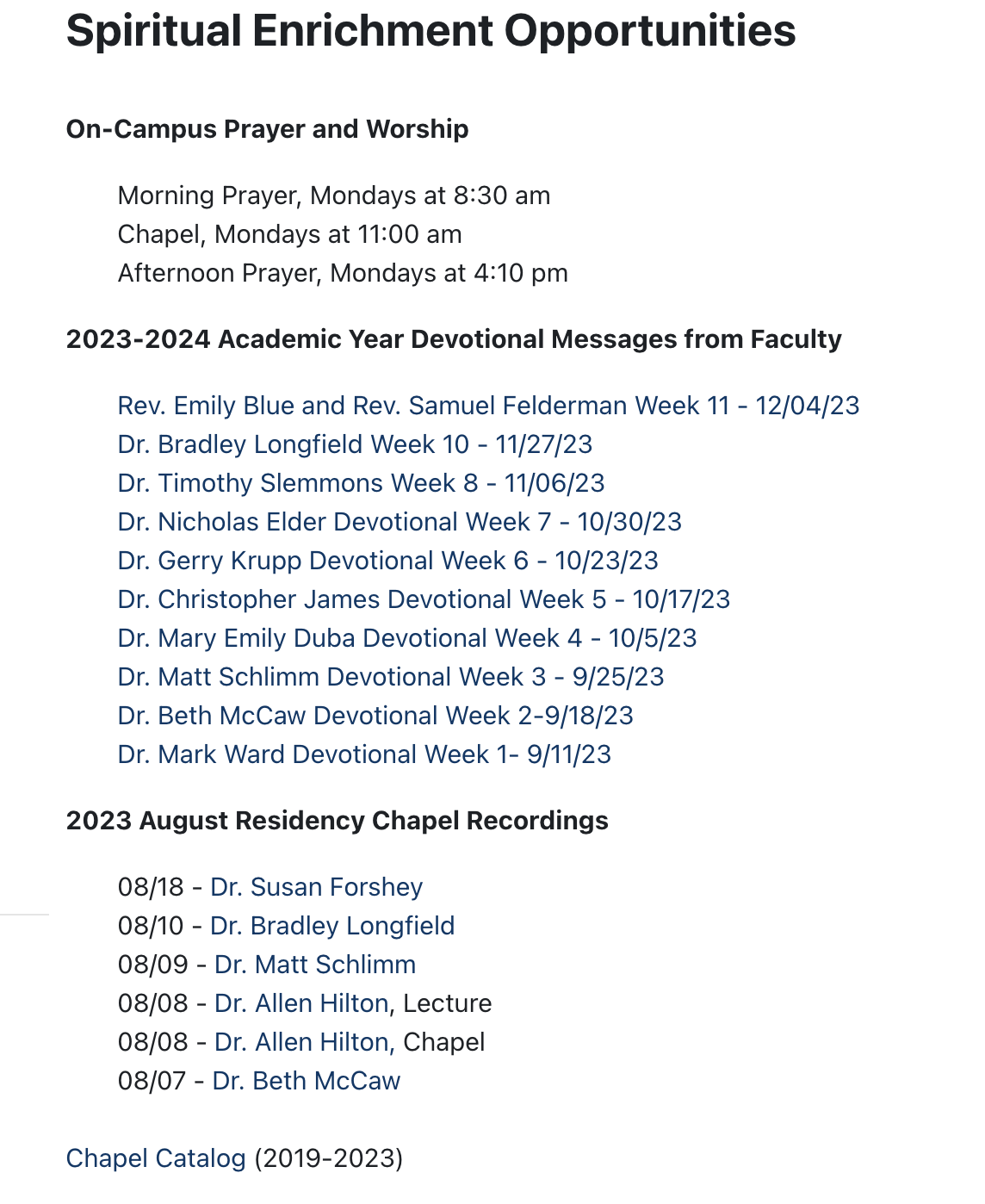- Descriptor: "Rooted" in the historic Christian faith. Even as we also emphasize "contextual" theological education and developing "missional" imaginations, our understanding of learning and formation is remains rooted in the historic Christian faith. Evidence: We offer/require (depending on degree) a two-semester sequence in Doctrine and the History of Christianity, and offer electives in some of the great figures in Christian thought as well as electives with specific doctrinal emphases (ie. soteriology). Once common, I suspect this is a distinctive today. [Artifact: Graduation checklists by degree showing history/doctrine requirements.]
- Descriptor: Learning and formation are "grounded in worship." Evidence: Monday morning prayer, chapel, compline. August chapel. Zoom compline (covid). Experiments with various to make chapel accessible to distance students. Artifact: UDTS Moodle front page "Spiritual Enrichment Opportunities." See attached screenshot taken 3/27/24.
- Descriptor: "integrative or holistic" We don't try to cleanly separate intellectual learning, pastoral/practical preparation, and spiritual formation. Evidence: We don't ask students to check their intellects at the door of formation classes (example: Susan's use of science in formation courses--see syllabus) and we don't ask students to check their spiritual lives or practical pastoral formation at the doors of theology classes (example: HT 567 Imagining Salvation begins each week with prayer and reflection on the ways soteriology shows up in the church's song and visual arts).
